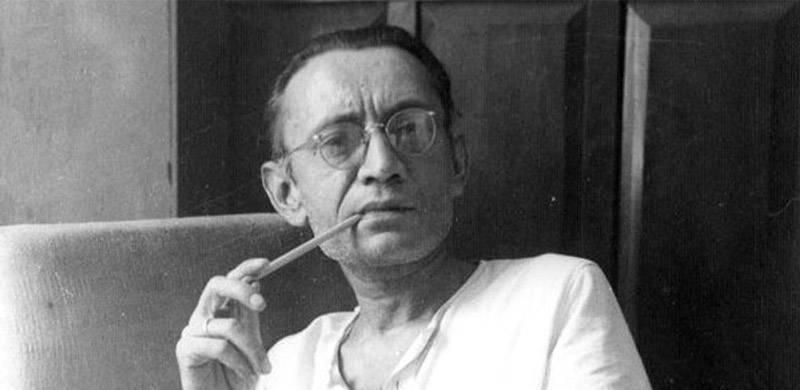
'I am the trader of sighs
To versify blood is my mission
Remaining winds of the garden!
Gather your refuges...for
My fiery songs
Are about to cause an upheaval within depressed bosoms'
Amritsar was a city of worshippers of freedom. This city had witnessed the bloody event too which is remembered in history as the tragedy of Jallianwala Bagh, a 100 years ago this month. When this incident occurred in 1919, Saadat Hasan Manto was nine years old. The hero of Jallianwala Dr Saifuddin Kitchlew was a close relative of Manto and because of him, the Manto family also had to face misfortunes. Due to this, the calamity of Jallianwala Bagh was preserved in Manto's subconscious. Manto has also written a few short stories in this respect. Tamasha, 1919 ki Aik Baat, Divaana Shayir and Swaraj ke Liye, etc. Here an attempt will be made to directly narrate the feelings of young Saadat Hasan Manto at that time as well as that heart-rending story of Jallianwala Bagh in Amritsar.
Manto's ancestral homes were in Koocha Vakilan (Chowk Fareed) of Amritsar. Since the majority of their members were linked with the legal profession, and approximately all the homes in this quarter were of the Manto family, it had become famous as the 'Lawyers Quarter' by this association. Its population was numbered among the powerful Muslim families of the city. Many prominent Muslim leaders too were born there. Indeed Dr Saifuddin Kitchlew was a relative of the Mantos. In addition, Attaullah Bukhari, Qazi Fazlullah, etc. were also important political leaders. In the Manto family too, most of the people became eminent lawyers and barristers of their time. Manto's eldest uncle Asadullah Manto and Manto's two elder brothers Khwaja Muhammad Hasan Manto and Khwaja Saeed Hasan Manto were also barristers, who had obtained higher education in law from Britain.
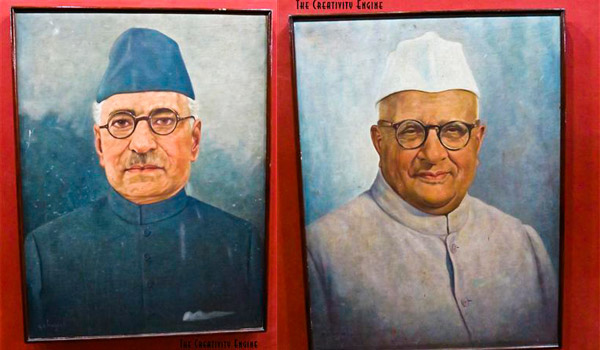
Saifuddin Kitchlew on the left and Dr Satyapal on the right Courtesy: thecreativityengine.wordpress.com
Saadat Hasan Manto's initial education was at home. When he was a child of 8-9 years, he was admitted to the fourth grade of the primary section of Muslim School. This portion of the school was located near Chowk Fareed, which was within a distance of minutes from their home. After passing the fourth grade, he was admitted to the fifth grade at Government High School Amtitsar near the statue of Queen Victoria. During the same time, such an incident occurred on the way to the school near the statue of Queen Victoria, merely from the effects of which a short story writer had begun to be nourished within the mind and imagination of that young boy. The background of the bloody incident of Jallianwala Bagh which originated from that tragedy, is briefly as follows.
In 1919, the whole of Punjab was agitated against the Rowlatt Act of the British Government in the Indian subcontinent. The Indian members of the Legislative Council had strongly opposed the Rowlatt Act so that this Bill may not be passed. Muhammad Ali Jinnah had resigned from the Council in protest against it. The newspapers also strongly opposed it but contrary to all popular feelings, this law took the shape of an Act by being passed on March 21, 1919.
This was deemed as humiliating and oppressive in India. As per the Act, no recourse to appeal, dalil (evidence) or vakil (lawyer) could be had. In that period, Saifuddin Kitchlew and Maulana Ali Azhar, whom were contemporaries of Maulana Zafar Ali Khan were also excellent speakers. The Muslims of India were already at the forefront in the movement for the restoration of the Caliphate in Turkey under the leadership of the Ali Brothers Maulana Muhammad Ali Jauhar and Maulana Shaukat Ali. Mahatma Gandhi too had given the call for country-wide satyagraha on February 25, 1919.
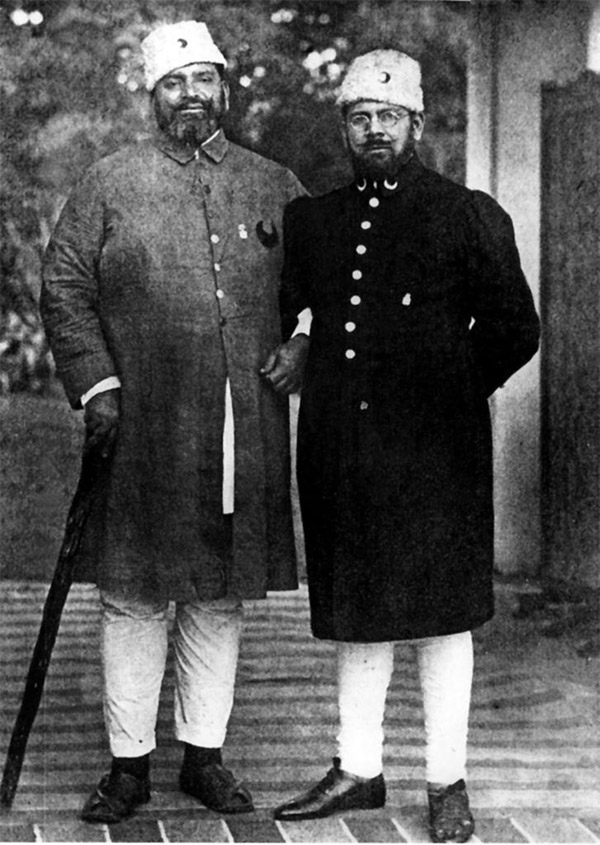
Ali Brothers
The leaders of the Punjab branch of the Indian National Congress, Dr Saifuddin Kitchlew and Dr Satyapal made committees for the success of this movement in Amritsar and addressed them. On March 30, the meeting which Dr Saifuddin Kitchlew and Dr Satyapal organized was participated in by approximately 30,000 people. This popular wave worried the then-provincial government. The Deputy Commissioner of Amritsar Irving warned Dr Kitchlew not to participate in this movement but the leaders did not heed this at all. Many strikes occurred over this issue in the different cities and villages of the province; now the political anarchy and the Rowlatt Act created an atmosphere which was explosive. In these circumstances, the Governor of Punjab Michael O'Dwyer deemed these gatherings and strikes to be a conspiracy against the British government and a declaration of war against the British crown.
When Mahatma Gandhi arrived in Delhi from Bombay on April 8 to review the effects of the movement, he received an official order there under which he was barred from entering Punjab; but he proceeded towards Amritsar. He was arrested on the way near Palwal and sent back to Bombay.
There was an extreme reaction. Due to the seriousness of the situation, the government supplied the cantonments in Punjab with further military reinforcements and decided to remove Dr Kitchlew and Dr Satyapal from Amritsar on April 9.
Coincidentally on that day, the Hindus had taken out a procession on the occasion of their religious festival Rama Navami, in which Muslims too were participating in large numbers. The Deputy Commissioner of Delhi was of the opinion that the coming together of Muslims and Hindus in this manner has assumed a new political importance. The rulers were definitely faced with a nervous situation.
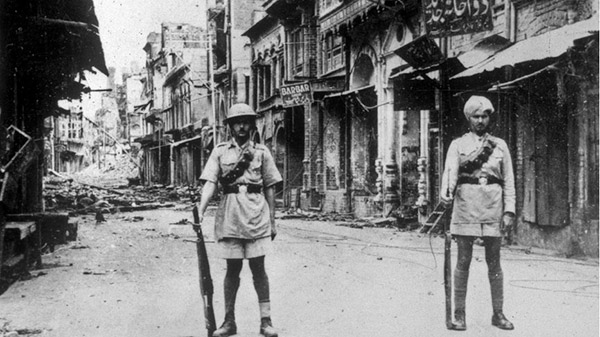
The Deputy Commissioner of Amritsar Irving had received orders for the expulsion of Dr Saifuddin Kitchlew and Dr Satyapal, but he was not ready to follow them, since he thought that there was no danger of any insurrectionary matter in this city at that moment.
People organized peacefully about which there was no question of violence, but the very name of Governor O'Dwyer stood for blind power. He rejected the Deputy Commissioner's report. He was dominated by fear that these leaders are prone to overthrow the throne (of imperialism) at the behest of Gandhi and this conspiracy was working behind the scenes of these strikes and processions. So Deputy Commissioner Irving had to take measures which he thought would mitigate the trouble.
On April 10 at 10 in the morning Irving called Dr Kitchlew and Dr Satyapal to his bungalow and read out the order of district expulsion to them. He had the two leaders escorted out of the back door and sit in a car, and took them to some unknown location. The English officers thought that the situation would improve after the removal of these gentlemen from the scene.
When Congress members who had come along their leaders to the Deputy Commissioner's bungalow protested, they were arrested, but this news could not remain concealed. It rather spread throughout Amritsar like a forest fire. Bazaars and businesses closed down. The city wore a deserted look. The heart of every person was troubled by the action of the English. People began to congregate in droves near the Hall Gate.
They consisted of all kinds of people, old, young, big and small, their faces were yellow and lips clenched. Among them too was that school student Saadat who like other children was seeing gathering people arriving, emerging from here and there.

A young Saadat Hasan Mant. Courtesy: The Pity of Partition - By Ayesha Jalal
Though Saadat was young, he wanted to find out what the incident was about? People were coming in rows and parties from everywhere. There was a situation of chaos around Saadat. Another crowd coming from the opposite end of Hall Bazaar also joined.
Upon their joining in, the tongues of the people already present came alive and the mute crowd screamed suddenly with full strength that "Everyone should go together to the Deputy Commissioner bahadur and request for the cancellation of the expulsion orders of our beloved leaders." But the moment for even the request never came. The rulers deemed this congregation of the people illegal indeed. The bungalow of the Deputy Commissioner was in the Civil Lines; every big officer lived in this secluded area of the city. Here was a bridge linking the city and Civil Lines, crossing which a person reached the Thandi Sadak, where the white rulers had constructed this earthly heaven.
This incident took place on April 9. When this congregation of people began from Hall Gate, Saadat too was behind them in the throng. Obviously no one had paid attention to him and he like them was moving proudly with quick steps. These were unarmed and peaceful people, the crowd kept proceeding towards the bridge linking Civil Lines and reached near the Bridge.
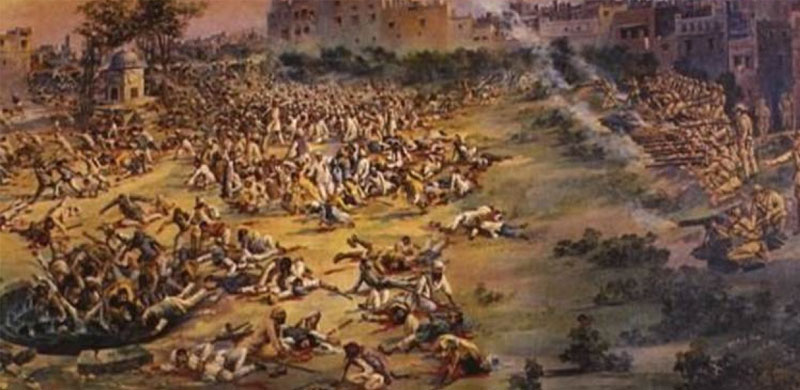
The procession was stopped near the gate. When the procession tried to proceed further, the goras opened fire on the other side. No one had even an inkling about this. So there was a stampede. The goras deputed at the checkpost were merely 20-25 in number and the crowd consisted of hundreds. Commotion spread, some were injured by bullets and many were injured in the stampede. There was a drain on the right side, some fell into it. Young Saadat also fell into it. The drain was not deep; he remained hidden there, afraid until the bullets kept firing. He rose up to look when the bullets stopped. The whole crowd had scattered. The injured were lying on the road and there were victorious smiles on the faces of the goras standing on the bridge.
Obviously in this situation Manto himself would not know what his mental state would be. His senses were not stable. The shape of the site of the incident that had occurred after getting out of the drain would only have emerged gradually in the mind; there were voices of noise in the far distance. There was anger within people. He returned near the Hall Gate, crossing the drain from the other side passing through the takia of Zahira Pir; where a gang of 30-40 youth was gathering and hurling stones and pebbles in anger and enthusiasm at the clock of the Hall Gate. Its glass broke and fell out on the road.
A youth cried that, 'Chalo...now let's break the statue of the Queen.' His friend said, 'No yar..let's burn the magistrate's office.' Another interrupted, 'And all the banks too...' An agitated youth, stopping them, said, 'Wait...what use is this? Chalo let's kill the armed ones on the bridge.'
Despite being behind at a distance, Saadat recognized him. He was Thaila Kanjar....his name was Tufail but was famous as Thaila Kanjar. He was the son of a prostitute. A great loafer, infamous for his drinking and gambling habits. For his young age, that was all that Saadat knew about him. Thaila's two sisters Shamshad and Almas were the most beautiful courtesans of their time. The richest people from far and wide used to come attend their mujra. Both sisters were always complaining about their brother's tricks. It was also known in the city that they had disowned their brother. However Thaila would extract his requirements from them by hook or crook. He was always well-dressed; ate well and converse in a sophisticated manner. He stayed away from the crudeness of the mirasis and bhands; a beautiful youth of tall height, strong muscular skin, fine features. Saadat could see that he was passionate. A mini-party of boys had accompanied him. Some hotheads advanced towards the statue of the Queen. Thaila screamed forcefully, 'I said do not waste your passion there, come here with me...chalo let's kill them who have taken the life of our innocent men and injured them. By God, if we come together, we can wring their necks...aao chalo!'
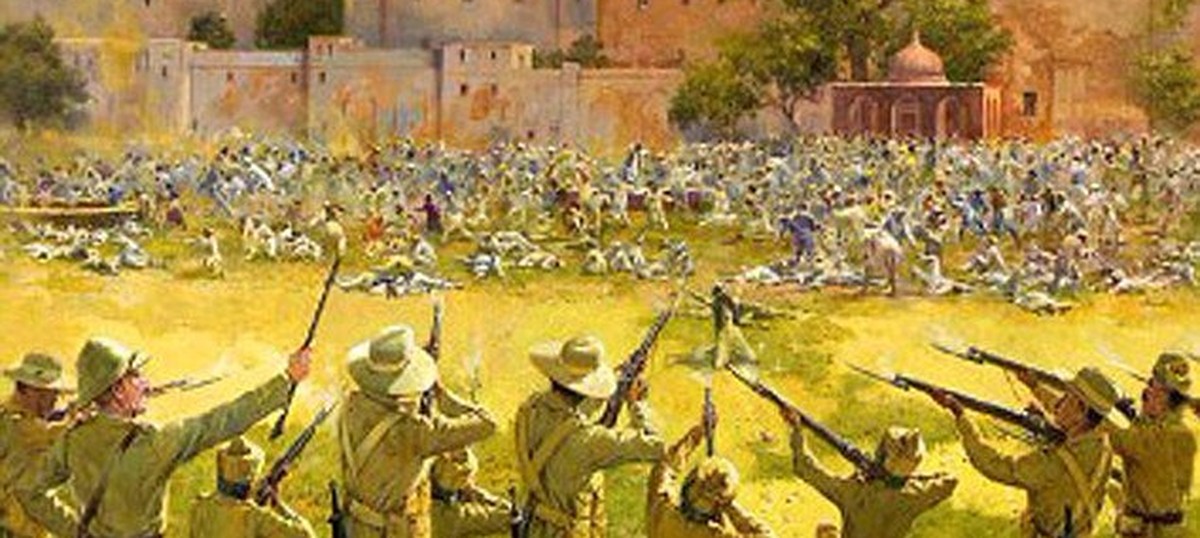
Some stopped, the rest went there. When Thaila advanced forward, they also began to walk behind him. 'Thaila just wants to tell them that he is not the one to be afraid of bullets', he addressed his fellows. 'Those who are afraid can return.'
At such moments, how could advancing steps turn back and that too at the time when the leader would lead from the front putting his life on the line(?). Thaila quickened his steps, the others also did the same. Saadat was seeing this view standing hidden near the fountain. The distance of the bridge from the Hall Gate was roughly some 60-70 yards. From where the double-faced parallel railing begins, at a distance of 15-20 steps from there were standing those horse-riding gora soldiers. These people leapt towards them, raising slogans.
Thaila was prominent in the front. There was a crowd behind. Saadat could not make out the scene clearly due to his 3.5 feet height and the distance. In a state of harassment, he tried to look by repeatedly standing on his tip-toe and jumping. When Thaila reached the start of the railing by raising a slogan, the noise of a fire sounded.
Everybody ran but Thaila kept advancing. He turned to look....he screamed, 'Don't run away...advance forward!' His face was towards the back, so people had moved away from the middle as soon as the bullet was fired. Now the view was relatively better for Saadat. Another fire occurred.
Thaila turned to look at the goras and stroked his hips. Saadat saw reddish spots on his white Boski shirt....but he did not fall, quickly advanced forward, like a wounded lion...another fire occurred. He stumbled, but with one or two strong steps he leapt at the horse-riding gora near him and in a trice the hip of the horse was empty, the gora was floored and Thaila on top of him...the gora's neck was in the lock of his hand. The second horse-rider first panicked, then began firing...innocent Saadat could not see more than this and fainted near the fountain.
When he regained consciousness, he was in his home. Some men of Chowk Fareed had recognized him and brought him home. Consciousness was indeed regained, but the writhing of Thaila's dreadful end was in that little mind. Perhaps it was this mystery which gave birth to the quest of a story within that child and that moment when a short story-writer too found refuge within; who afterwards enriched Urdu literature by writing unique and classic short stories.
It is said that when the lifeless Thaila was separated from the gora, both his iron hands were joined to his neck....the gora had descended to Hell. Saadat Hasan Manto has given a story's form to this eyewitness incident of 1919 which was a precursor to the tragedy of Jallianwala Bagh. When the renown of the beauty of Shamshad and Almas, the courtesan sisters of the victim of English bullets the martyr Thaila reached the English army officers, they were summoned for singing. At the end of the soiree of joy and pleasure, they get naked by throwing off their dresses, addressing the army officers, come see we are the sisters of Thaila.
Of that martyr whose beautiful youth you rained with bullets, for he had the spirit of patriotism. Come do whatever you want but...before you do this, let us spit at your face once. Both were blown away with bullets at this bravery. Manto wanted to tell with this story that a courtesan too possesses the feeling of freedom and patriotism; she too is a human like other people. Did Almas and Shamshad become immortal by giving their lives?
Did they attain the status of martyrdom? The conservativeness of the social environment of the subcontinent will hesitate to give them this position, rather will curse them that they sullied even the martyrdom of their brother.
In the story 'An Incident from 1919', Manto has presented two faces of action: one, presenting the struggle against British rule with an emotional reference; second, that which Manto has shown to be happening in real life. The conclusion of this story was possible in both ways, but the second ending is more effective from an artistic point of view. This compromise with life can be expended both by taking the flow of life down below or rise above.
Maupassant also narrates the bravery of a courtesan in a story Mademoiselle Fifi. After conquering France, the Prussian victors procure prostitutes to rejoice in the area of Normandy. In this party, a Prussian officer Fifi addresses a courtesan while declaring: 'France and the French, the woods, the fields and the houses of France belong to us! All the women in France belong to us also!' The courtesan Rachel says, 'That - that - that - is not true - for you shall not have the women of France!' That officer responds, 'Then why did you come here, my dear?" She says to him indignantly and vehemently: "I! I! I am not a woman, I am only a strumpet, and that is all that Prussians want.'
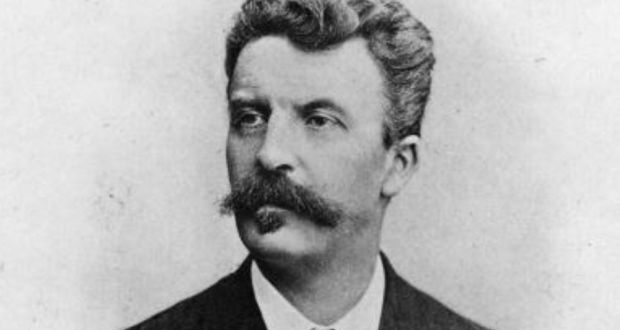
What Maupassant has had the courtesan say that I am not a woman, but a strumpet; this is enough to violently shake humanity. Does France regard Rachel as worthy of honour? Indeed Maupassant gives her the status of a hero and French Revolution at least prides itself on owning the courtesan.
Though Manto's short story 'An Incident from 1919' also deserves to be analyzed before critics in the same manner, immediately after which the sparks of Jallianwala Bagh flare up. Those who wanted to negotiate with the English authorities in the case of the expulsion of their beloved leaders from Amritsar; but in response an aggressive attitude was maintained with peaceful people and bullets were fired upon them, due to which incidents throughout the city assumed severity.
When amid tension, stretchers were sent from nearby hospitals to the site of the incident to bring the injured, the authorities, displaying great heartlessness, ceased work on removing the injured from there. Indeed after this people were provoked to such a degree that it engulfed the whole city. Now the crowd was no longer peaceful. It set fire to official buildings, banks including the Alliance and National Banks, the Town Hall, the central Post Office, Mission Hall and the Bhagtanwala Railway Station.
The godowns of the National Bank were burnt. Looting intensified in the shops and bazaars. This series of murder and mayhem went on till late night. During this time, the wire and telephone system was also disconnected and European families were forced to take refuge in the fort and other safe places.
This fire spread to the villages of Amritsar too. Twenty Indians were killed in these incidents and countless were injured. When the first fire was opened, the crowd had started moving back in the beginning. They had thought that the firing will stop but this did not happen, rather bullets were fired in succession on the fleeing people. Many people were hit on the hip, marks of bullets were found at the back of the waist on the bodies of most of the dead.
Six goras were also killed in this carnage. Two goras were photographing with camera in front of the great door of Darbar Sahib when two people attacked them from the turn in the street. Both men had swords in their hands. One descended into the stomach and the sword of the second got stuck in the ribs of his friend. Both died as soon as they fell. The corpses of two firangis were lying at a short distance from each other in the bazaar.
Their golden hair were getting discoloured due to blood and dust. Concealed and silent fire which was leaping between fleeing citizens in roads, streets and bazaars; which was lit in hearts and eyes rather than bodies. A terrible anger waved everywhere, which was breathing within every soul and thing possessing life.
In Sharifpura Chowk, an Englishman who was in a state of near-death, a pointed and thinnish knife had pierced right through his neck and he was crying silently waiting for death; eventually he died. A white woman was running in terror through the lane linking the Hall Bazaar to Sabzi Mandi in that a hunting party was in pursuit after her. They came upon the woman in the middle of the lane and were staring at her with dirty looks and the poor thing was in a state like a terrified doe. She kept revolving on her heels in fear on all four sides. Her face was lifeless like a white fish. She let out screams, the party fell upon her. She disappeared below the men.
The screams were heard constantly, but she was a tough rubber-like woman. She jumped, emerging from one side from between them and ran in one direction; she was semi-naked. Her clothes were in tatters; the hair on head standing scattered and she had run expanding her legs with full speed. The threatening hunting party also ran behind, eventually came upon her and then killed her.
This was a woman of a missionary school named Ms Sherwood who was thrown in the street after being killed. Military cars and gora soldiers began to patrol on the roads and in the bazaars. Governor O'Dwyer had received telephone calls in Lahore from authorities pertaining to the situation of the city. Deputy Commissioner Irving of Amritsar had given the city in the charge of the army. The Governor had also immediately sent the Deputy Commissioner of Lahore AJW Kitchin to Amritsar.
General Dyer was commanding the army. The machinery of government was in motion. The inhabitants of the city were scattered at every nook and corner of the city; they were now gathering in groups within streets, corners and localities. One crowd advanced to enter Hall Bazaar from the street. There, a lot of armed white soldiers were standing. They took positions and set up a battery like in a battlefield by spreading here and there. The crowd stopped, afraid. Meanwhile, suddenly a division of Indian club-wielding police appeared in the bazaar from the opposite direction which started clubbing the crowd; some were hit and others were not. But what happened as a result was that people could not enter the bazaar. In the same manner, disorganized and unbridled people were stopped with the help of bullets and bayonets at other places too. At this, the Deputy Commissioner Lahore AJ Kitchin presented a full report of control to Governor O'Dwyer.
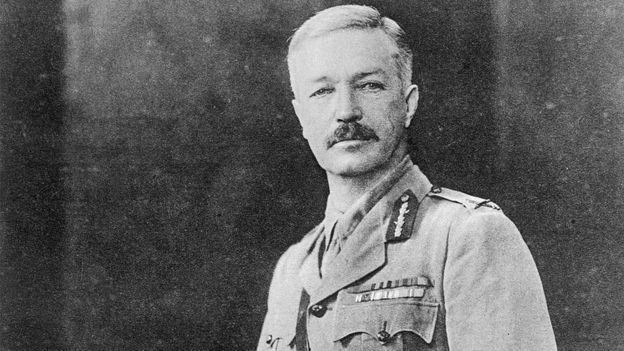
The crusader of freedom Dr Saifuddin Kitchlew and Dr Satyapal had been implicated in a conspiracy case. Since Dr Saifuddin Kitchlew was a close relative of the Mantos, both the elder brothers of Saadat Hasan Manto, Khwaja Muhammad Hasan and Khwaja Saeed Hasan - who had attained higher education in law from Britain - came to Lahore from Amritsar amid those tumultuous times and jointly began to pursue this case.
After the murder and arson, on the next day April 10, there was a state of silence in Amritsar; even ordinary crimes did not occur. The authorities too after enough abuse, allowed people to bury their dead and burning their pyres, but with the instruction that they should return home by 2 pm after completing their last rites; however the supply of electricity and water was withheld as punishment. The corpses of dead Indians were returned to the heirs. When the corpse of Tufail aka Thaila was brought to his house for burial, a lamentation ensued in the quarter. His skin was riddled with bullets. He was not popular in his community but everyone began to roar upon seeing his bloodied corpse. His sisters Shamshad and Almas repeatedly went into stupor. When the funeral began, those sisters wailed such that the listeners too wept tears of blood. Poor Thaila was buried hastily amid a state of panic. The same situation faced the other corpses, as if their death was some serious crime committed by their mourning relatives. General Dyer marched with the soldiers in the city. Those were very chaotic days. The army held sway. The demon called Martial Law was bellowing about in every street and quarter of the city and the patrol of armed police presented a strange appalling scene. The bazaars which hustled and bustled were now deserted with some unknown fear. There too was a mysterious silence within the homes. Horrible fear ruled.
Manto too was sitting near his father in the frightened atmosphere of the courtyard at home and was asking, 'Abba jan why don't you let me go to school?'
His father said to him, 'Beta schools are off.'
Manto said, 'Master sahib didn't inform us. He said that whichever boy will not show his copy after completing schoolwork will be severely punished...you didn't even let me go yesterday.'
'School is off. So is our office.' His father reasoned with him.
'Ok then that's fine. Chalo I'll hear a very nice story from you today.'
'No bhai, not today.'
'You don't even let me go out, if I remain at home, I'll listen to a story from you.'
Manto was adamant. In the meanwhile, suddenly three airplanes passed screaming on the sky over heads. Both looked up, terrified. Manto remembered that the previous day too planes had been circling the city throughout the day. He could not reach a conclusion, so he said to his father, 'Abba jan I get really scared by the noise of these planes. Whatever they scream, ask them not to pass over our house.'
'You're mad indeed.'
'Abba, these planes are so terrible, yesterday Ammi jan was saying that these plane people also have lots of cannons... what if some day they throw a cannon on our homes.'
Manto's father Ghulam Hasan cracked up at his boy's talk. 'Your mother is mad indeed. I will inquire from her why she talks like that at home...don't worry, there is absolutely nothing of the sort.'
'If the planes do any kind of such mischief, remember I too have a gun, the same one which you had bought me last Eid.' And Manto went into his room while practicing marking a target for his air-gun with his finger; and sat at the window of the room which opened towards the bazaar, peeking towards the latter, where there was quiet everywhere. He thought the bazaars indeed remained closed on the day of the incident, but why were they closed still? There was nothing outside; he could not reach a conclusion.
How could young Manto know this outside the enclosure of home that the whole of Punjab was crying silently beneath the extremely tortuous oppression of the English? Arrests were hastily brought into effect in the city. In this regard, it was not considered who belongs to what position and to which family. People were publicly flogged. To humiliate citizens an order was issued for them to salute any Englishman by bowing wherever the latter was to be seen; the slender lane in which Ms Sherwood was murdered was utilized exclusively for flogging people. In addition, it was compulsory for every Indian passing there to cross the lane by crawling along his stomach. On both sides of this "crawling" lane were two-storey houses. The lane was extremely narrow, dirty and densely-populated. It also became a source of humiliation and misery for the residents there. They could not bring provisions and basic items from the bazaar and also could not arrange to clean their homes. Here the police had been appointed so that no one could be spared from the punishment of crossing by crawling. Where the Englishwoman had been killed with barbarity, the exact spot was reserved for flogging and whoever even raised his head a fraction, would be punished by flogging. People of all ages had to suffer this punishment. The flogging would be done with such savagery that the bodies of most of the people would be injured. These punishments became the center of attention of the entire world. So much so that even Governor O'Dwyer had to contavene General Dyer because the British government was becoming notorious around the world due to this.
